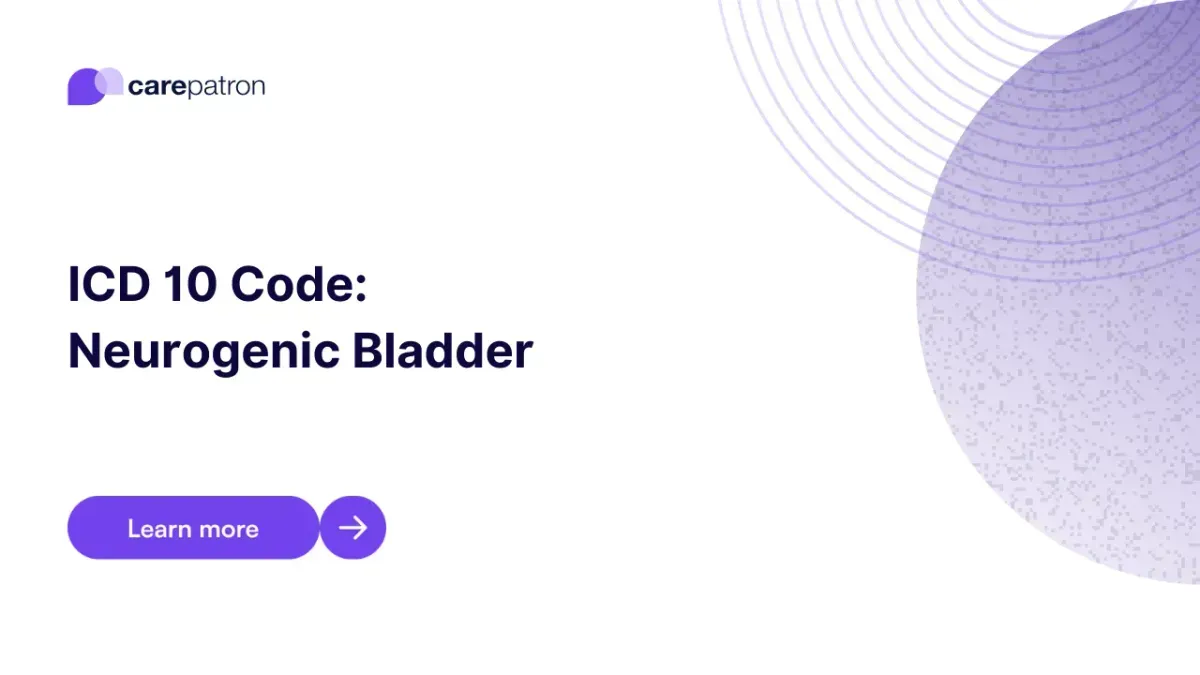
Neurogenic Bladder ICD-10-CM Codes
Read this short guide to learn about Neurogenic Bladder ICD codes you can use!
Use Code
Commonly asked questions
Examples of neurological problems that can cause neurogenic bladder include strokes, Alzheimer’s Disease, multiple sclerosis, encephalitis, cerebral palsy, and spina bifida.
If left unchecked and untreated, a neurogenic bladder can lead to urinary tract infections and kidney damage, especially if little to no pee is drained.
Healthcare professionals will have to determine and address the cause of the neurogenic bladder. As for the neurogenic bladder itself, treatment includes bladder-relaxing medication such as oxybutynin and solifenacin, Botox injections, physical therapy, and electrical stimulation.
If basic treatments like those mentioned above don’t work, healthcare professionals might use catheters to help drain the bladder. Surgery is the last resort.
EHR and practice management software
Get started for free
*No credit card required
Free
$0/usd
Unlimited clients
Telehealth
1GB of storage
Client portal text
Automated billing and online payments
